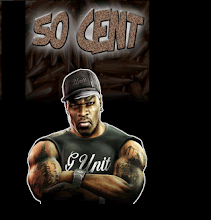According to EPA estimates, Americans hit the roads more than 900 million times a day, and approximately half of those trips are taken by solo drivers going less than five miles. In today’s economic climate, and with a growing focus on environmentally-friendly ways to get from one place to another, consumers are changing their buying habits to purchase alternative transportation products such as the Segway, a leader in two-wheeled electronic mobility.
Earlier this year Best Buy announced that it was going to sponsor the racing team for the Brammo electric motorcycle in the TTxGP motorcycle grand prix. Of course it seemed logical for Best Buy to carry through to retailing Brammo’s street bike, but the retailer made their move even more expansive than just providing a retail outlet for Brammo products. Although Best Buy says they have no plans to expand into other markets, they have committed to 20 stores, which is a sizeable group of sites to use for a test case.
Because current trends are so supportive of green technology, Best Buy will most likely keep their environmentally-friendly products as permanent additions to their lineup and expand the sales to all Best Buy stores through the United States. The current recession is eroding margins across all industries, but green technology and eco-friendly products are still viewed as being hot prospects, according to research analysts. An Aberdeen Group survey last year showed that 57% of respondents claimed they were focusing on green technology product development or sustainable supply chains in order to gain a competitive advantage.
Best Buy’s strategy in expanding into eco-friendly transportation is a savvy move, because they have increased their visibility and heightened competitive advantages without having to make a lot of changes on the back end. Sales of consumer electronics, such as computers and peripherals, are on the decline right now, but green technology is on the rise. Analysts feel that although current trends show retailers pursuing low margin, inexpensive basic products, Best Buy is taking a calculated risk that will probably pay off by targeting a single high-margin category that most retailers are comfortable in experimenting with.
Best Buy’s gamble is further supported by the tax credits and other savings available to consumers who buy the alternative transportation because they are cost-conscious. Zero Motorcyles, a member Plug-In America, a coalition of electronic motorcycle manufacturers, announced earlier this year that its street-legal electronic motorcycles are going to be eligible for the 10% federal tax credit recently passed. Plug-In America has lobbied to get the tax credit expanded to encompass all motorcycles that are plugged in, because demand is growing for them.
Earlier this year Best Buy announced that it was going to sponsor the racing team for the Brammo electric motorcycle in the TTxGP motorcycle grand prix. Of course it seemed logical for Best Buy to carry through to retailing Brammo’s street bike, but the retailer made their move even more expansive than just providing a retail outlet for Brammo products. Although Best Buy says they have no plans to expand into other markets, they have committed to 20 stores, which is a sizeable group of sites to use for a test case.
Because current trends are so supportive of green technology, Best Buy will most likely keep their environmentally-friendly products as permanent additions to their lineup and expand the sales to all Best Buy stores through the United States. The current recession is eroding margins across all industries, but green technology and eco-friendly products are still viewed as being hot prospects, according to research analysts. An Aberdeen Group survey last year showed that 57% of respondents claimed they were focusing on green technology product development or sustainable supply chains in order to gain a competitive advantage.
Best Buy’s strategy in expanding into eco-friendly transportation is a savvy move, because they have increased their visibility and heightened competitive advantages without having to make a lot of changes on the back end. Sales of consumer electronics, such as computers and peripherals, are on the decline right now, but green technology is on the rise. Analysts feel that although current trends show retailers pursuing low margin, inexpensive basic products, Best Buy is taking a calculated risk that will probably pay off by targeting a single high-margin category that most retailers are comfortable in experimenting with.
Best Buy’s gamble is further supported by the tax credits and other savings available to consumers who buy the alternative transportation because they are cost-conscious. Zero Motorcyles, a member Plug-In America, a coalition of electronic motorcycle manufacturers, announced earlier this year that its street-legal electronic motorcycles are going to be eligible for the 10% federal tax credit recently passed. Plug-In America has lobbied to get the tax credit expanded to encompass all motorcycles that are plugged in, because demand is growing for them.








No comments:
Post a Comment